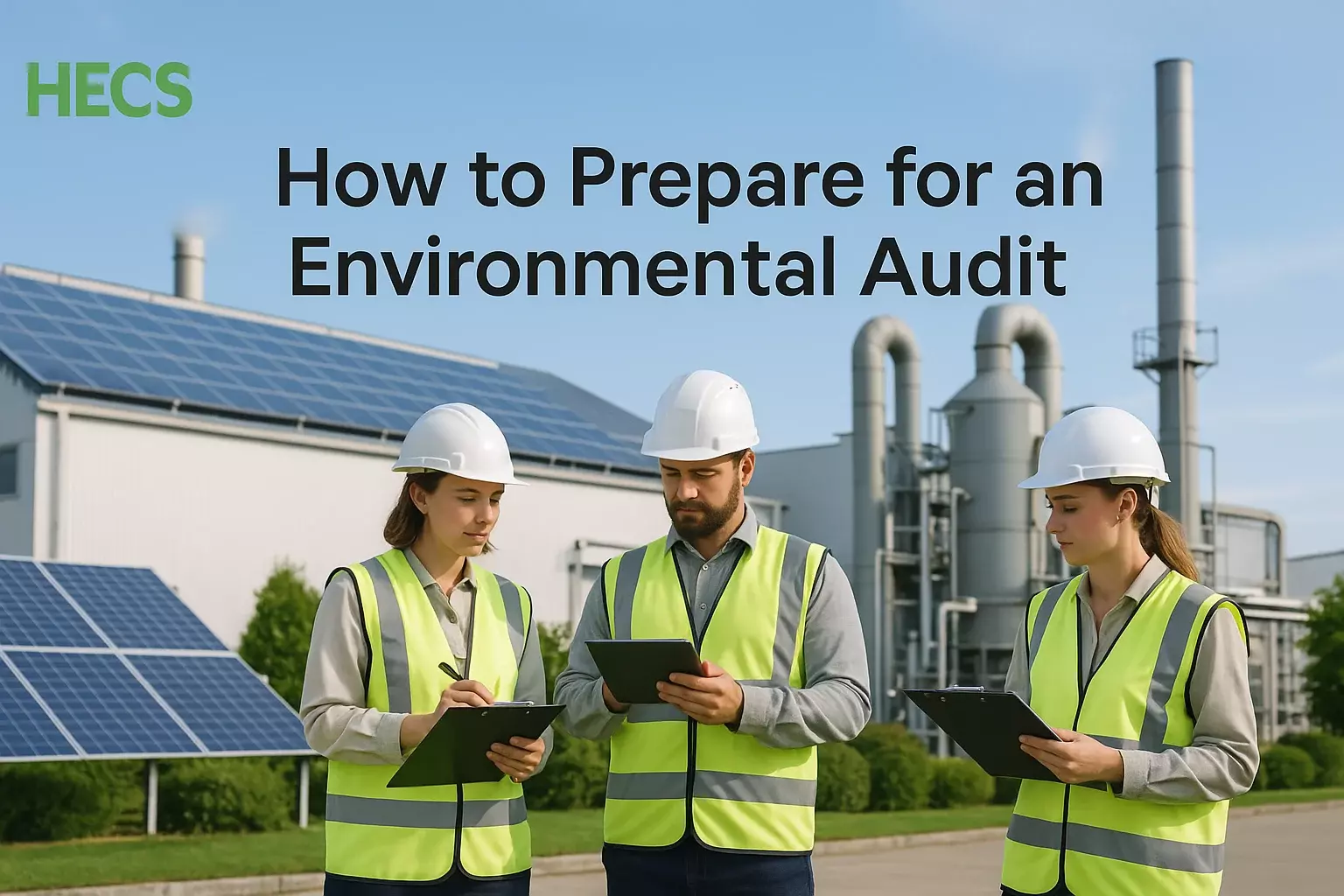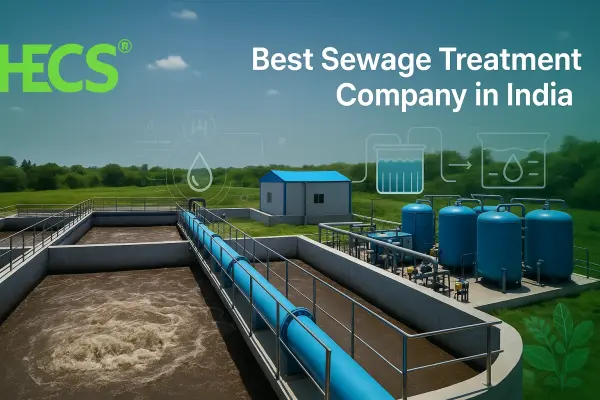
How to Prepare for an Environmental Audit: A Step-by-Step Guide for Industries

Why Environmental Audit Preparation Matters?
Preparing for an environmental audit is no longer optional—it's a necessary step for any organization committed to legal compliance and sustainability. This audit evaluates whether your facility meets current environmental regulations and assesses your ongoing efforts to minimise ecological impact. A well-prepared audit process can prevent costly fines, avoid operational delays, and protect your company’s reputation. It also signals to regulators, stakeholders, and the public that your organisation takes environmental responsibility seriously. Whether you're undergoing a routine inspection or a compliance-focused review, understanding what to expect and how to get ready makes all the difference. From documentation and reporting to on-ground checks, proper planning ensures smoother execution and fewer surprises. This guide outlines everything you need to know to prepare for your upcoming environmental audit, giving you the confidence to face it head-on and turn it into a strategic advantage for your business.
What is an Environmental Audit?
Understanding Environmental Auditing Basics
An environmental audit is a detailed assessment of your company’s operations to check if they comply with environmental laws and standards. It reviews your processes, records, and facilities to ensure you’re meeting legal requirements and following good environmental practices.
This audit acts like a performance check. Auditors identify risks, gaps, and areas where improvements are needed. It helps organisations reduce environmental impact, avoid penalties, and improve overall sustainability.
Different Types of Environmental Audits
Internal audits are conducted by your own staff. These help you find problems before external reviews. External audits use independent third-party auditors. They provide objective assessments.
Compliance audits focus on regulatory requirements. Sustainability audits examine broader environmental impacts. Both types are important for comprehensive environmental management.
Why Environmental Audit Preparation is Essential?
Avoiding Costly Penalties
Unprepared companies often face significant fines. Environmental violations can cost thousands of dollars. Some penalties reach millions for serious breaches.
Proper preparation prevents these costly surprises. It shows regulators your commitment to compliance.
Building Stakeholder Trust
Well-prepared audits demonstrate responsibility. They build trust with customers, investors, and communities. This trust translates into business value.
Companies with strong environmental records attract better partnerships. They also enjoy an improved reputation and market position.
Pre-Audit Planning Essentials
Gathering Critical Documentation
Start by collecting all environmental permits. Include licenses, monitoring reports, and regulatory correspondence. Organise waste disposal records and emission reports.
Create a central filing system. Digital systems work best for quick access. Ensure all documents are current and complete.
Building Your Audit Response Team
Select key personnel from different departments. Include operations, maintenance, safety, and management representatives. Assign specific roles to each team member.
Train your team on audit procedures. Practice responding to common questions. Ensure everyone understands their responsibilities.
Step-by-Step Environmental Audit Preparation
Step 1: Review Current Environmental Regulations
Environmental laws change frequently. Stay updated on the latest requirements. Check federal, state, and local regulations that apply to your industry.
Create a compliance checklist. This helps ensure you don't miss important requirements. Regular reviews keep you current with regulatory changes.
Step 2: Conduct Internal Facility Inspections
Walk through your entire facility. Check all environmental systems and equipment. Look for potential compliance issues.
Inspect waste storage areas carefully. Verify chemical handling procedures. Test monitoring equipment for proper function.
Step 3: Verify Equipment Calibration
Environmental monitoring equipment must be accurate. Check calibration dates on all instruments. Schedule calibrations for overdue equipment.
Keep detailed calibration records. These prove your monitoring data is reliable. Accurate data is crucial for audit success.
Step 4: Organise Documentation Systems
Create easy-to-navigate filing systems. Group documents by category and date. Use clear labelling for quick retrieval.
Prepare electronic copies when possible. This speeds up document sharing during audits. Ensure backup systems protect important files.
Step 5: Train Staff on Audit Procedures
Educate employees about the audit process. Teach them how to interact with auditors professionally. Practice answering common audit questions.
Role-play audit scenarios with your team. This builds confidence and reduces stress. Well-prepared staff make better impressions on auditors.
Common Environmental Audit Challenges
Incomplete Record Keeping
Many companies struggle with missing documentation. Start maintaining complete records immediately. Implement systematic record-keeping procedures.
Regular internal reviews help identify gaps. Address missing information before the audit. Complete records demonstrate serious compliance efforts.
Equipment Maintenance Issues
Broken or poorly maintained equipment creates audit problems. Develop preventive maintenance schedules. Keep detailed maintenance logs.
Regular equipment checks prevent surprises. Working equipment shows operational competence. This impresses auditors and reduces findings.
Best Practices for Audit Success
Implementing Continuous Monitoring
Don't wait for audits to check compliance. Monitor environmental performance continuously. Regular internal assessments identify issues early.
Use automated monitoring systems when possible. These provide consistent data collection. They also reduce human error in reporting.
Maintaining Open Communication
Build relationships with regulatory agencies. Ask questions when regulations are unclear. Proactive communication prevents misunderstandings.
Keep stakeholders informed about environmental efforts. Transparency builds trust and credibility. This positive reputation helps during audits.
Investing in Environmental Technology
Modern monitoring systems improve accuracy. They also demonstrate commitment to environmental protection. Technology investments often pay for themselves through improved efficiency.
Consider cloud-based environmental management systems. These provide real-time monitoring and reporting capabilities. They also ensure data backup and security.
Conclusion: Achieve Environmental Audit Excellence with HECS
Successful environmental audit preparation requires systematic planning. It requires attention to detail and knowledge of regulations. Following this guide puts you on the path to audit success.
Hubert Enviro Care Systems (HECS) specialises in environmental audit preparation. Our experts help companies achieve compliance excellence. We provide comprehensive environmental management solutions.
HECS offers proven audit preparation methodologies. Our consultants understand complex environmental regulations. We help you develop effective compliance strategies.
Partner with HECS for your environmental audit needs. Our team provides expert guidance throughout the preparation process. We ensure your organisation meets all regulatory requirements.
Contact HECS today to schedule your consultation. Let us help you achieve environmental audit success. Together, we'll build a stronger environmental compliance program.
Share this post:





